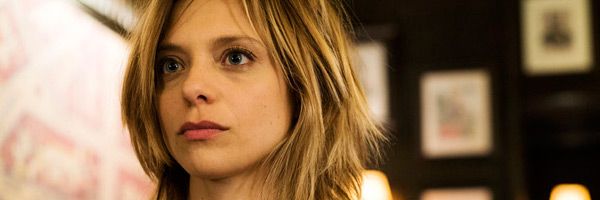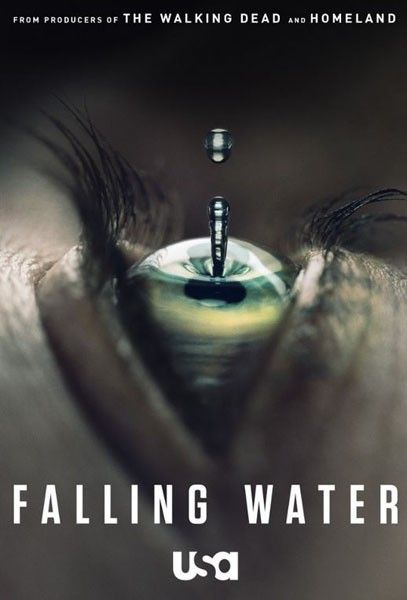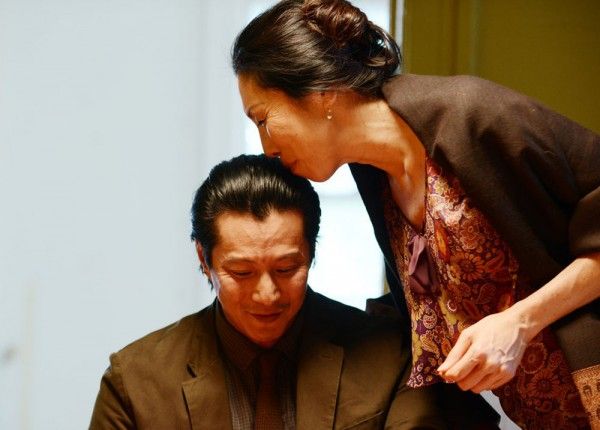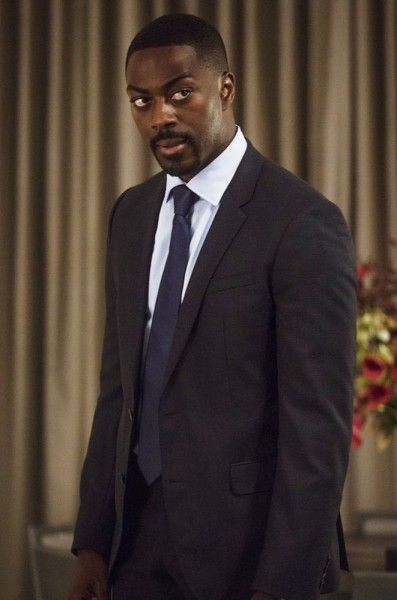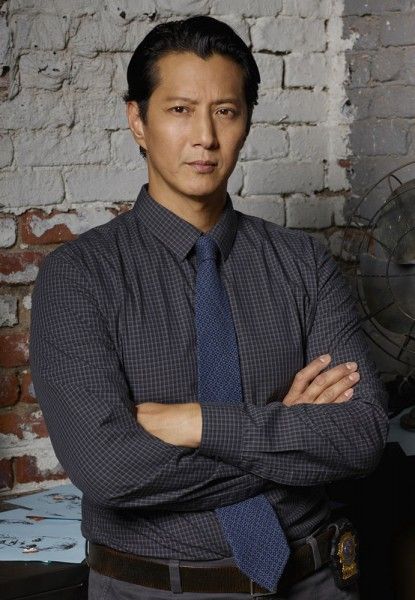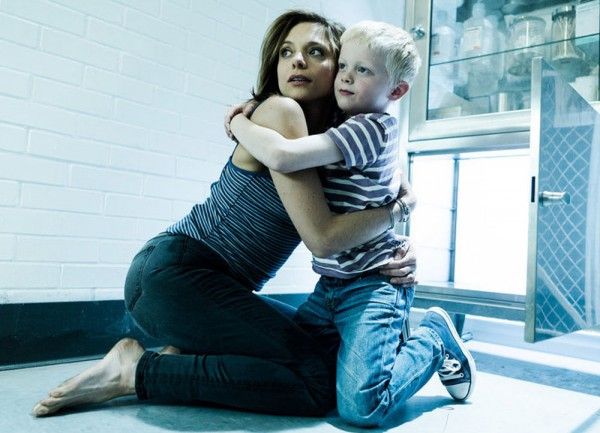From executive producer Gale Anne Hurd and showrunner Blake Masters, the USA Network drama series Falling Water tells the story of three unrelated people – a trend-spotter named Tess (Lizzie Brocheré), a fixer named Burton (David Ajala) and a cop named Taka (Will Yun Lee) – each motivated by different but very personal factors. As they realize they’re connected by the fact that they are all dreaming separate parts of a single common dream, they must figure out what their dreams are trying to tell them and how much they can alter reality by altering the course of their dreams.
During this exclusive phone interview with Collider, executive producer Blake Masters (who co-created the show with the late Henry Bromell) talked about whether he feels they achieved the show they set out to make, telling a story that stands apart from the crowd, why he believes it’s important to give the audience answers, what viewers can expect from what’s to come, letting the story live in the silences, what he’s learned from completing a season of this series, and how Season 2 (if they are given one) will be a surprise to audiences. Be aware that there are some spoilers discussed.
Collider: When you started out on this journey, what were the goals that you set out with? And by the end of the season, did you feel satisfied that you had achieved those goals?
BLAKE MASTERS: We set out to make something that stood apart from the crowd and pulled the story in a different way and embraced a different view of the world. I know where it all ends up, and it’s in a place that’s unique and different. I love it for that. The way we approach the show is that we try to do things really organically. By the end of the season, we actually achieve a place that’s, on the one hand, a really beautiful ending for the initial 10 episodes, with a sense of conclusion and shape, and yet, at the same time, has certain levels of ambiguity that open the door for a fabulous Season 2. What’s great about it is that we don’t leave you with, “Wait, I don’t understand what that was,” kind of questions, and yet, you want to know what happens next. That was really always the goal. By the end of the first season, we want you to understand how this world works, but there are still a lot more questions about what’s going to happen next. One of the really interesting things about where we’re getting to in the season, with Episodes 5 and 6, is that we begin to start to answer the questions to pin together the way in which these strands we’ve been weaving come together, and we’ll show what’s underneath them. We’ll show you where the hidden connections are, that allow you to understand how the world fits together. Episodes 5 and 6 are really important because we start to give you a lot of answers.
From the beginning, you’ve been pretty clear in saying that people would have answers, by the end of the season, and that they’d really have a sense of what the show is. Is where you ended up exactly where you thought you’d end up?
MASTERS: The mythology of the show has never changed. What the rules of the universe are has never changed. The way in which the story passed and the way we navigated our way through the dark forest did change, but the forest itself stayed exactly the same. We never changed the big underpinnings of the show. We never had to improvise that or change that. I had ideas for how we were going to navigate the forest, but one of the ways I run a show is I always let that go and try to find the natural way through the forest. By the end of the season, we did exactly what I wanted to do, which was to come out the far side of the forest in an unexpected and surprising way that gives you conclusion and satisfaction, and yet, opens you up to go, “My god, where do they go from here? I want to know what happens next. I want more.”
Would you say that, by the end of this season, we’ll have a pretty good sense of what Season 2 could be?
MASTERS: I think Season 2 will be, in a way, a surprise. But what you’ll know is what the rules will be, going into Season 2, and you’ll know who all the players are. The question is, how do those players interact and what new players will we bring to the table. One of the things about this show is that it’s such a different show, in the way it’s paced, in the way we use sound, and in the way we minimalize dialogue and emphasize the visuals, that we have to let the audience learn how to watch the show, and then we have to fill in the puzzle pieces for them, so that they understand that we’re not cheating them. We’re not just out here doing stuff, willy nilly. There’s actually an underlying solid logic, and Episodes 5 and 6 are the inflection point where that logic comes to the surface. Once you have that and you have this idea that we’re going to tell story in a way that’s not what we’d call traditionally linear, but in these circular ways and in ways that double back on themselves, and you get the answer to something in the waking world, in the dreaming world. That idea is now embedded and we understand how the world works, so we can really follow the emotional journeys through the back half.
You’ve approached this with the assumption that the audience is smart and would be willing to take this ride, even if it took them some time to understand what the story is that you’re trying to tell. Were you looking at viewer feedback to see that they started responding in the way that you’d hoped they would?
MASTERS: I try to avoid too much viewer feedback, mostly because the decisions are all made before the viewers get a chance to weigh in. But, I’ve been really pleased with what people have responded to and that there are people out there who have embraced the idea of something that is so unique and special and wants to push the boundaries of the way in which you can tell a narrative television show. You can do something in this way that is a little bit more Mulholland Drive and Lost Highway than it is a more traditional, straight ahead format.
A lot of shows like this spin their wheels for a bit, so that they can delay those answers for as long as possible. Why was it important to you, from the beginning, to tell people that they would get answers?
MASTERS: It’s from my own experience, watching those shows, that they spin the wheels because they don’t feel they have anything beyond their answers. If the answers to the mystery are the only thing the show has, and the only way they can sustain drama is to falsely withhold them, the audience gets angry. I got angry when I was the audience member of those shows. I hated them, at a certain point. I got frustrated with them. I continued to watch because I wanted those answers, but it wasn’t an enjoyable experience for me. So, with this show, because I felt the universe and the mythology we created was so interesting and so open-ended, that once you knew the mythology, it wasn’t the end of the show. Once you’ve established what the rules of the world are, there’s still drama to be had. I’m happy to give the audience the little key on the corner of the map to help you understand the map. I think five or six episodes is plenty for the audience to want answers. Because I think that map is so interesting for you to wander around, I want you to be able to wander around it.
Since we’re passing that half-way point now, what can you tease about what’s to come?
MASTERS: With Episode 5, you understand how the boy, the Belgians and Burton all fit together, and what was really going on with the business deal in Montreal. And once you tie Burton to the boy, you’ve tied Burton to Tess and Taka. The boy is the hinge on which it all turns. And we will come to understand who is trying to find the boy and who the competing interests are, who are all out to get the boy. By the end of Episode 6, you’ll know just how powerful that boy potentially is. So, I think the back half of the season really does tighten the strings of who the boy is. There is this little mystery of who has the boy, and we will discover if our heroes can get to the boy and save him for Tess and if Tess can find her son. And there is Burton’s quest to discover the real fate of the Woman in Red, who we’ve revealed is not a dream. One of the key moments in the season is the end of Episode 5, where we reveal the Woman in Red is a real woman, and she’s basically Patty Hearst in the closet, being held by a bunch of people with green sneakers. So, we’ve tied Taka back to Burton, which is another loop. Can Burton find the Woman in Red? And then, in the back half, we’re trying to get to why The Green is so interested in Taka and what his connection is to their end. Of course, there’s also the question of what Bill really knows and how genuine his quest to help Tess is. All of that will be answered, before the end of the season.
Listening to you talk about the show is like listening to someone talk about a chess game with moving pieces. Did you actually have a board with these pieces on it, so that you could keep track of who was shifting where?
MASTERS: From the beginning, the writers and I sat down and created the chess board. Than it was really about how we unveil where the chess pieces are in our storytelling. The scripts were given to the cast one at a time, so they would experience the revelations at the same pace that their characters were. One of our actors, in particular, literally drew a map where she had everybody’s name and a dot, and then would draw a line of connection. With every episode, she would update it until, by the end, it was just a messy maze of lines that made me giggle. As we get into the back half, all of that ambiguity resolves into a really clear picture, and yet, within that, there is still that wonderful mystical ambiguity, but it’s more emotional and tonal and about the delivery device than the underlying plot. We’re very, very clear about who the boy is, why he’s important, how Tess can find her son, where the Woman in Red is, what her agenda is, whether Burton can get to her, rescue her and save her, how Taka can save and heal his mother. The purity of those three journeys is the North Star of the show and why the show works, emotionally. The purity of those drives, no matter how crazy and ambiguous between dream and reality it gets, what our characters want is always 100% clear. Burton wants to somehow find the Woman in Red, Tess wants to find her son, and Taka wants to somehow heal his mother. The purity of those journeys allows us to then take this world where your dreaming blends in to your waking and there’s an ambiguity of what’s dreaming and what’s waking. If somebody is wondering how they know what’s a dream and what’s real, the answer to that is it’s all real. Our dreams are real. They’re just as real as our waking lives. They’re dreaming and there’s waking, but they’re both equally real. That’s the one thing I wish I’d been more explicit about in Episode 5.
You’ve talked about how an average script for an episode is less than 40 pages in like because it’s a show that deals in silence and where the dialogue is sparse on purpose. How does that affect the storytelling for you? Did that give you a certain freedom, or did you have to find ways to tell the story through that?
MASTERS: Part of it was a process of learning. Our first couple of scripts were longer and we didn’t have enough room. We learned that we had to tell stories that are more hued to that idea. It is both liberating and maddening. It’s like writing a sonnet. There’s something beautiful in the form, but at the same time, you have to obey the limitations of it. For us, we embraced it, as a writing staff, because we wanted to do something no one else was doing. Most of television, for television’s history, has been a mid-shot of a head yakking. That’s what television was because televisions were 13 inches. Now, everybody has got a 55-inch TV with a surround sound bar and 5.1 stereo. We need to take advantage of that. We want to do something that is so cinematic and so visual. The style that (director) Juan Carlos Fresnadillo set in the pilot was so fantastic that we set everything to come based on the idea that dreams are very real and reality is a little dreamy.
As the showrunner of a TV series, you’re responsible for everyone and everything, and you’re ultimately the one who gets the credit or the blame for the finished product. What do you remember about the first day you were on set as the showrunner? Was there a sense of knowing it’s what you were meant to be doing, or did you feel like you had no idea what you were getting yourself into?
MASTERS: My first job as a showrunner was on Brotherhood, when I made the pilot. When I walk on set now, I had the same feeling I had then, which was, “This is where I belong. I’m here, doing the thing I was meant to do.” In the wake of Brotherhood, which was a really well received show and very much within a very traditional idiom, it gave me the courage, on Falling Water, to really try to push the boundaries of what you could do in the format. That was the great joy for me, as a showrunner. The show is what the show is. I love it. I think we’ve created something special and unique. Beyond that, it’s out of my control. I just hope that the audience loves it as much as I do, and I really want to keep making it. I want to keep delivering this special and unique story to the audience.
Were you ever concerned about finding an audience for a show that is so unique and different, or was that challenge the appeal of it?
MASTERS: I think that was really the appeal. I don’t know what audiences think. I know what I think, and I think this is really cool and interesting. I give audiences for intelligence and for being thirsty for something different ‘cause I’m thirsty for something different. I was thirsty for the next place television could go and how we could push the boundaries. That’s what interested me, as an artist. Audiences are incredibly savvy, and television shows that talk down to the audience, that explain everybody’s internal backstory, and that only deal with the most well trodden paths, it’s not satisfying to them or to me, as an artist. I think audiences want something new, and that was the whole point of doing the show. We wanted to see how far we could push the boundaries to “go out where the buses don’t run.”
Aside from the storytelling being unique and different, it’s also visually very different. What have you learned from completing a season of this show that you think will work to your advantage and benefit you, in future seasons?
MASTERS: When you go from a pilot, where you have twice as much time, to series, it’s takes a little while. With just a pilot under your belt, you have directors coming in who don’t quite know what this show is supposed to look and feel like, so there’s a massive education process there. Now that we have a body of work, I think the cinematic language of the show is really established, with our use of changing film speeds between 48 fps and 24 fps, our use of anamorphic lenses, and the way in which we use sound, which is such a huge part of the show. We now know what the show is supposed to sound like and what it’s supposed to look like. I think the actors have finally figured out how they’re supposed to move between the worlds. The first season really was a journey of discovery. We changed the template a little bit each week, and we tried different things each week. Now that we’ve explored that, we have a wonderful foundation to explore even further in the second season.
Even though some of the concepts in this show seem so foreign, it all comes back to the emotion and connection, with such a great balance between the two.
MASTERS: If you embrace what the show is, and you embrace the style and let it wash over you, it makes perfect sense because it makes emotional sense. All the little plot Easter eggs that are there become incredibly wonderful little diamonds when you figure out how they fit together. That’s what’s special about this way of telling the story. It’s really experiential. You’re not playing connect the dots. You’re actually letting it come over you. That’s why the visuals, the lack of dialogue and the sound is so important. When you let it wash over you, the emotion of it has such a clear, coherent logic that that drives the story forward. In a way, it’s like a great experimental novel, where it’s doing all sorts of weird things, but you completely embrace it and go for the ride because it makes emotional sense.
You really have a tremendous cast of actors and it works to their advantage that the audience is not overly familiar with who they are because it makes their journeys that much more unexpected.
MASTERS: Although it’s harder to make noise in the marketplace, my preference with a television show is to try to lean on faces you don’t know too well. Then, for the audience, the actor is the character. There’s no star persona. When people do become stars, that persona goes with them to their next project. When you put Matthew Perry in Friends, he just was Chandler Bing. Now, he’s still Chandler Bing, on four other shows. So, with a show like this, it was a conscience decision to try to find faces that were compelling and that you believed were dreamers, and who were emotionally deep, interesting and fresh, but that you hadn’t seen them carry a vehicle of this size allowed you to discover them and embrace them. There’s an ownership the audience then takes of that actor because they can be like, “I found them on this show that I love. I’m one of their first fans.” One of the great joys of television is that you can do that.
Falling Water airs on Thursday nights on the USA Network.

